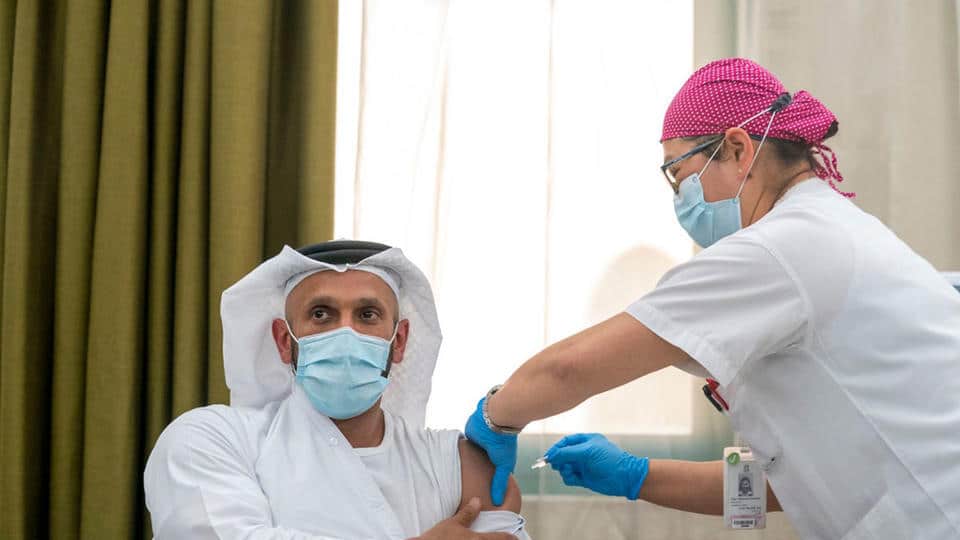
Too many adults I have encountered over the years have a fear of Higher Education (HE) – even among those that have a strong desire to learn and develop themselves and their careers. There appears to be an apathy or even a dislike towards HE among many Irish adults.
Could it be that indifferent views of HE are influenced by experiences of some form of rejection in the HE system? Maybe not getting the required Leaving Cert. points, dropping out of a course or not being in a preferred course or college. Additionally, feelings of inadequacy have been handed down from previous generations, when access to HE was generally reserved for the affluent, those in the clergy or for the few who attained exceptional Leaving Cert. results.
Thankfully, access to HE in Ireland has vastly improved in many ways. There are now considerably more course types and levels, places and access routes: see my article in last month’s edition. Although there are some cracks in Ireland’s HE system, like our health system it is fundamentally world class. Despite such advancements, the Irish HE system and that of the EU – programmes that we have full and equal access to – remain underappreciated and engaged with, particularly among adults in Ireland in their 30s/40s-plus.
A HE qualification in itself is no guarantee of getting your dream job or changing your life for the better. Higher Education Institutions (HEIs) and their programmes are about much more than preparing students for future roles in the workplace. Finding the right programme can be a catalyst for both personal and career development. This can be particularly the case for people in their 30s/40s-plus, who pursue the right postgraduate programme.
HEIs in Ireland offer a wide variety of postgraduate courses. Increasingly these are structured in a flexible way to accommodate students who may already have major life commitments. Part of the government’s ‘National Strategy for Higher Education to 2030’ is to engage with the wider community. More and more courses are being delivered in blended or fully online ways. With the onset of Covid-19, this trend is likely to continue. Full-time postgraduate courses delivered face-to-face on campus are decreasing. What’s also changing is the way you access these courses.
For many postgraduate courses, the main entry requirement is a minimum of an upper second-class honour’s degree (NFQ/QQI Level 8). However, applicants who do not hold an honours degree can often be considered on a case-by-case basis. These applicants should have significant relevant work experience and involvement in the discipline. This generally means that if you have a leaving certificate or equivalent and professional experience, you can get access to a postgraduate programme. Your life experience and volunteering achievements are often taken into consideration too.
This is significant for many people who think that you need an undergraduate degree as a prerequisite for postgraduate study. For those who feel that they may not have the academic capacity to get through such a postgraduate programme, it is important to note that many programmes are designed and delivered with that in mind. Courses are generally broken up into a number of modules with ongoing assessment (e.g. written assignment and presentations). Big, written exams have become less prevalent at postgraduate level.
It is also important to point out that there are many specialised postgraduate programmes that cannot be accessed by related experienced alone. If unsure, the best thing to do is to read the programme webpages and get in touch with the programme director to arrange a meeting, maybe by phone or video call. It is part of their job to liaise with people enquiring about the programme, especially potential course participants. If you are not eligible to apply on this occasion, you can seek advice on what you could do to become eligible, perhaps doing a particular short course or gaining work or voluntary experience in a specific area.
One thing that may be worth considering is the level that the postgraduate programme is at, e.g. higher diploma, postgraduate certificate (NFQ/QQI Level 8), postgraduate diploma or master’s (NFQ/QQI Level 9). It may also be worth checking if your course of interest offers an exit award, in case you do not complete it as intended, i.e., that you can exit with a postgraduate certificate or diploma from a master’s programme on completion of certain modules. Postgraduate courses/programmes usually take between a year and two years to complete.
What follows are brief stories from three West Cork-based people, each from a different background, who completed postgraduate programmes in their 30s/40s in recent years. Daragh’s story is inspirational in that he has no undergraduate degree. He completed a master’s degree in Business Studies (MBS) in 2018 via the Irish Management Institute (IMI) and University College Cork. Starting in a local bank branch, he worked his way to hold senior leadership roles in Bank of Ireland Wealth, and then in Johnson and Johnson. Recently, Daragh joined the team in the Ludgate Hub in Skibbereen, with responsibility for leading rural remote job creation.
Daragh Whooley, Clonakilty
Not going to college straight from school was never something I was embarrassed about. I never felt I had to explain why. The bank came calling and I started my career. “A job for life” was what I was told at the time. I worked hard, gave everything I had and moved up through the ranks. As I progressed to senior management roles, I felt that a piece of my personal jigsaw may have been missing.
I am intrigued by why people do what they do and what makes the best the best. Why does one person want to excel more than the other? What motivates them? Is it intrinsic or extrinsic? These questions are some of the drivers that keep me searching for ways to continue to improve.
A colleague of mine shared a prospectus for a master’s programme at IMI and UCC. I read it through in detail and took the plunge! As a mature student, I had a deeper insight from my life experience to help me choose what subjects were right for me. As an 18-year-old, I hadn’t a clue.
My studies involved three days every month over a two-year period. I drove a round trip of 650km from Clonakilty to the IMI, Sandyford, Dublin. I handed in my monthly assignments, attended my lectures on site, took copious notes and applied my learning practically. I was blown away by the depth and delivery by presenters! On top of this I held down a busy job as Provincial Manager in Munster for Bank of Ireland Wealth and was acutely aware of not dropping the ball here, which thankfully didn’t happen.
If advising any potential mature postgraduate student; it is to do something that you are really interested in, be very disciplined, set aside time every week to get your work done, join study groups (invaluable!) and reach out to programme facilitators for some guidance.
This master’s has given me extra confidence in my own self-taught ability and perspective of the bigger picture. It has clarified that every individual and organisation has the same day-to-day challenges and it has given me lifelong friends and connections across many different sectors. I was very fortunate to have a supportive employer throughout and wonderful support from my family, which made this happen. If you are considering returning to or starting third-level education later in life, it is a big yes from me.
Susan O’Regan, Baltimore
Looking back, I wasn’t sure of what I wanted at Leaving Cert stage, so I initially completed a two-year business studies course at CIT. I returned in my early 20s, completing an honours degree in Social Sciences at Glasgow Caledonian University, followed by a H. Dip. in Community and Youth Work at N.U.I., Maynooth in 1998. This led me to a wonderful and exciting twenty-year career working alongside the Traveller community, young people, rural, and urban communities and in the area of family support and adult education.
I can honestly say that it was never my plan to return to third-level education in my mid-forties! I was not ambitious in any sense and thought that my formal education was done. I had always loved my work as a youth and community worker and felt so fortunate to have already achieved my degrees.
Yet, in September 2015, I found myself stepping off a little commuter bus, a few miles from the Scottish town of Lockerbie, surrounded by rolling landscape and walked, with some trepidation, up the laneway towards the Buddhist Monastery Samye Ling, for my first weekend of a three year M. Sc. in Mindfulness Studies – a three-year programme run by Aberdeen University in partnership with the Mindfulness Association. I have never once looked back.
I chose this programme as it places huge focus on compassion-based mindfulness, which fits well with youth and community work. I also wanted to immerse myself more fully in mindfulness over a long period of time in order to deepen my understanding of it and enhance my sense of integrity in teaching it. The academic requirements were sometimes challenging but, thankfully, mindfulness itself is an incredible study aid, which kept me focused and steady throughout.
This deeply experiential programme changed everything for me, both personally and professionally. I never imagined the doors it would open. I continue to work in the community, teaching mindfulness skills to groups like the Irish Wheelchair Association and Cork Deaf Association tinnitus support group, as well as a wide variety of groups in school, community and adult education settings. I also train staff teams for companies and local authorities, run mindfulness retreats, workshops, online classes and have this year launched my own website, mindhaven.ie. It feels like I am only beginning, and I am very grateful that I followed my gut instinct and returned to higher education. For me, education represents freedom and is most definitely a lifelong process, as is mindfulness.
Sandra Flynn, Skibbereen
Like many people, I undertook my master’s degree when I was in my 30s. It was a part-time distance-learning programme at the Centre for Project Management, University of Limerick (UL). In those days, a courier would turn up at the start of the semester with a box of books and materials. As it happened, I never really left postgraduate education after that. After graduating from this programme, I began to tutor on it and supervise research students in the years that followed.
I still worked full-time in an industry role practicing project and programme management, while teaching part-time. In 2017, I decided to leave industry to focus on my teaching career and, more importantly, to pursue a lifelong learning goal of a PhD in education. It took a while before I found the PhD programme that I’m currently enrolled in at Lancaster University. In that time, I completed a postgraduate certificate online in Digital Education at Edinburgh University – a fully online programme. It was hugely valuable as, in addition to the interesting coursework, I made new friends among my peers and learned so much about what it is like to be a successful online learner – particularly having been an online teacher at UL for a number of years. I can safely say that I am a better teacher because of my experiences of being a student.
It was a huge adjustment to no longer have to juggle full-time work, part-time teaching and part-time studying. In my industry role, my working week would start at 7am on a Monday and not finish until 7pm on a Friday. I have to say that I am now loving the balance in having a little more time for my volunteering activities, as well as my PhD studies. My advice to anyone thinking about undertaking a postgraduate programme in mid-life is simply, you’re never too old and it’s never too late.



